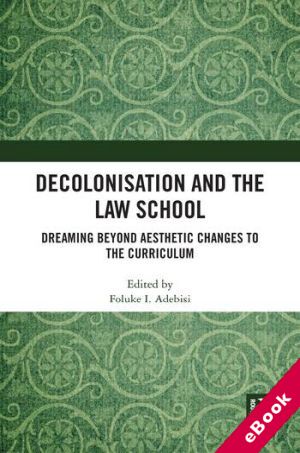
The device(s) you use to access the eBook content must be authorized with an Adobe ID before you download the product otherwise it will fail to register correctly.
For further information see https://www.wildy.com/ebook-formats
Once the order is confirmed an automated e-mail will be sent to you to allow you to download the eBook.
All eBooks are supplied firm sale and cannot be returned. If you believe there is a fault with your eBook then contact us on ebooks@wildy.com and we will help in resolving the issue. This does not affect your statutory rights.
This book explores strategies, approaches, tools, challenges, and reflections that animate the conversation around decolonisation in UK law schools. It investigates how we can have, within the UK law school, difficult conversations about the ways in which history has influenced what the law is, how law is taught, what law is taught, who the law works for, and who the law does not work for.
The conversation about decolonisation of the university and curricula continues to raise questions for knowledge production and transmission in educational institutions. Decolonisation also raises questions about the impact of the preceding issues on people within and outside these educational institutions. The decolonisation debate is an opportunity for legal academics to reflect on the origins of their own individual academic practices in research as well as the content of their curriculum. This volume examines the preceding issues as they relate to academic practices and legal pedagogy in UK law schools. The authors examine how legal scholars can achieve aims of decolonisation within the practical aims of teaching of law, as well as the limitations and possible challenges of these endeavours.
This volume will be of interest to legal scholars, legal educators, law students as well as legal practitioners who are engaged in questions of how decolonisation relates to law – broadly understood. It was originally published as a special issue of 'The Law Teacher'.